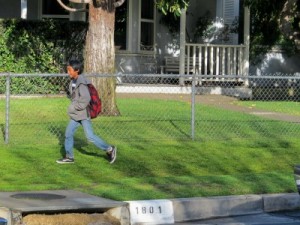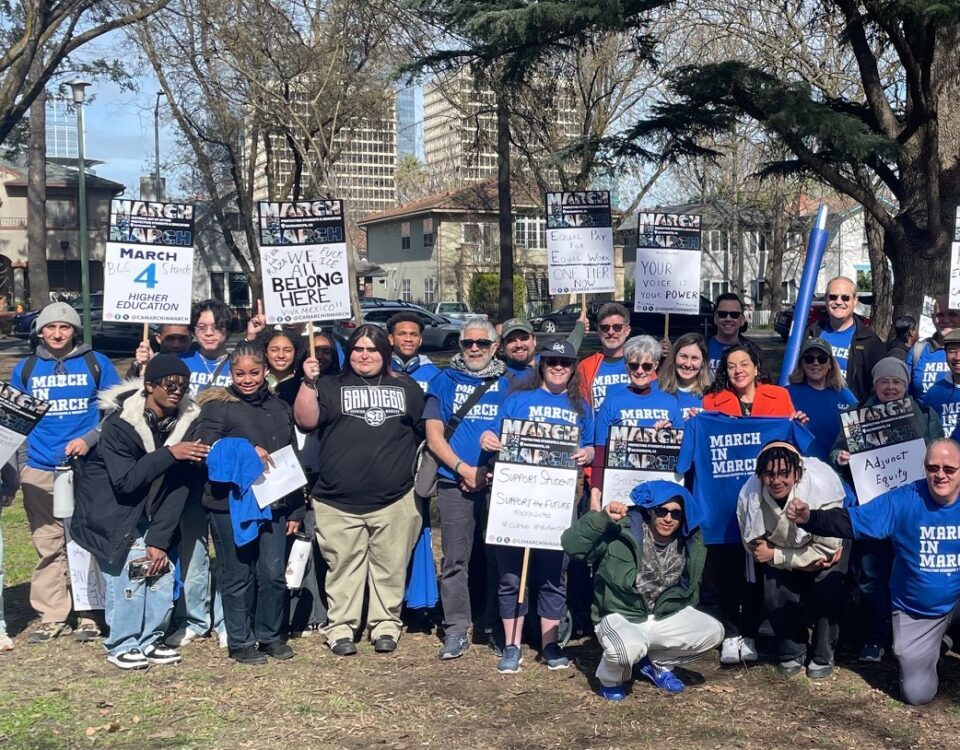
Photo: FLLewis/Media City G -- On the way to school, a Luther Burbank student walked on the grass area along the 1800 block of North Screenland Drive in Burbank March 7, 2011
The great sidewalk debate involves more than concrete. For me this issue involves the ethical treatment of people. The majority of residents on Screenland opposed the installation of sidewalks in their neighborhood but for their efforts they were much maligned as selfish people who didn’t care about the safety of children and wouldn’t accept change. The safety of children is often used as a specious argument to try to discredit an opponent as uncaring.
I believe this characterization of the Screenland residents is dishonest. I believe the greater truth is the people who live in that area were less upset about sidewalks than they were about the way they were treated by the city, the way their feelings were disregarded and how they were relegated to the position of enemies of the greater good by the City Council.
There is a long tradition in America of standing up for neighborhoods and exercising the right to petition elected representatives. Citizens should not be afraid to come to the council with their concerns and they should not be mistreated when their concerns are contrary to what the representatives want and it should never be personalized.
There is a public right of way on both sides of Screenland where the proposed sidewalks will be placed. This land belongs to the city, which is responsible for maintaining the right of way. This was not done and the city allowed obstructions to the right of way which is why pedestrians were forced to walk in the street. In spite of these conditions, there have not been any incidents where someone has been hurt because of a lack of sidewalks in over 70 years.
Additionally, one street over, Kenwood also leads to the school and the circumstances are similar to Screenland yet no proposed sidewalks for that street. Maybe the grant money should have been pursued for sidewalks on one side of Screenland and one side of Kenwood then the safety on both streets would have been enhanced.
In 2006, when the grant in question was applied for, the State did not require that the impacted residents be contacted for their input. Although, at the time it was the policy of the City Council that there be outreach to the residents, the City staff did not follow that policy but reported that it was done. That requirement has now been changed by the State because of situations like this. The City staff also submitted an application that contained errors and was somewhat misleading. In fact the City staff showed very little regard for this project’s impact on the residents. It appeared that for the staff it was just business as usual in chasing grant money.
Now in the aftermath of a less than stellar job by the city staff, there is a neighborhood divided and in conflict with one another, a neighborhood who has lost faith in the City Council and citizens who are dissatisfied with the work of city employees.
It has been my experience that it is not always what you do but how you do it that makes the difference.
Jackie Waltman Landlord-Tenant Commissioner Burbank

